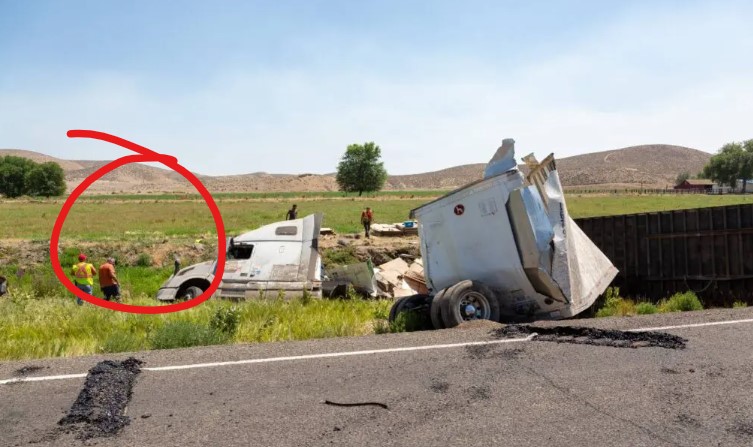
You might have heard of recent high-profile civil lawsuits that were filed following a homicide. Your family may be able to file a wrongful death lawsuit if you lost a loved one due to the negligence or intent of another. This article gives a general overview of how to file a wrongful death lawsuit.
What is a Wrongful Death Lawsuit?
A lawsuit for wrongful death may be filed if a person is killed as a result of negligence or an act of wrongful intent by another. The prosecutor can bring criminal charges against a person responsible for an intentional or negligent murder. A civil action can be filed by the family of the deceased person (decedent) against the person, institution, or corporation that is responsible for their death.
Survivors of a deceased person’s family can seek damages in several ways. These include financial compensation for:
- Funeral expenses after the person’s death
- Medical bills and medical expenses of the decedent
- Loss of companionship (consortium)
- Lost wages and other economic damages amounting to financial losses
- Pain and suffering from personal injuries before death
A jury can also award damages other than funeral costs in a lawsuit for wrongful death.
State laws may also influence the amount of compensation paid to beneficiaries. For example, medical malpractice or car accidents that result in fatal death can have different damage calculations depending on state-imposed caps and measures for comparative liability. The surviving children may be entitled to different damages amounts or types under laws from different states.
Can You File a Wrongful Death Lawsuit?
If a defendant commits a wrongful act that results in a personal injury claim, they can be found responsible for violating state penal codes. Surviving family members of the deceased can file a claim under wrongful death law. The state can also file criminal charges against the defendant if they broke the law. The surviving members of the family can sue for civil damages. This can happen concurrently with any criminal charges brought against the decedent by the State.
First, you should determine whether or not your state allows you to file a lawsuit. Each state has different laws regarding who can file this type of lawsuit. In some states, a wrongful death lawsuit may be filed by a decedent’s spouse, children, and other relatives. The claim could also be brought by:
- Personal representative
- Executor, trustee, or beneficiary of the Decedent’s Estate
- Special administrator appointed by a court
In order to understand the law in your state, you must first research it. If you’re not permitted to file a lawsuit of this nature by law, then someone else could be responsible.
Understanding Statutes of Limitation
However, in other states, only the statutes of limitations in your state for wrongful-death lawsuits. Every state has time limits on when a lawsuit for wrongful death can be filed. As an example:
- In California, the statute of limitations for wrongful death is two years.
- In Montana, the statute of limitation is three years (with some exceptions).
- In Florida, statutes of limitation are two years after the date of death.
In certain circumstances, the statute will start to run from the date of death. Other times, the statute will start to run when the harm is discovered. You will not be able to file a lawsuit for wrongful death if the statute of limitation defined by state laws has expired.
Filing a Wrongful Death Lawsuit
After determining that you can file a lawsuit for wrongful deaths within the limitations period of your state, you will need to file the documents to begin the civil litigation.
Typically, the first document filed in a civil case is file a summons. This is the document that notifies the defendant they are being sued. It specifies also where the lawsuit is to be heard.
All defendants should receive all relevant documents following the filing of the lawsuit. This legal procedure is known as Each state, or in some cases each county, has specific rules regarding proper methods of service. An experienced wrongful death lawyer will know the rules of your jurisdiction.
Review Your Wrongful Death Claim
It can be confusing to follow the procedure described above. The first step is to file and serve the initial pleadings. A lawsuit’s lifespan, which can last for many years, involves numerous nuanced steps that can be difficult to understand by a non-lawyer. It’s important to consult with a wrongful death lawyer before you file your lawsuit. A wrongful-death case evaluation can be done by an experienced attorney.
Prepare for Litigation
The pre-litigation step involves preparing for a lawsuit. The personal representative will need to perform several tasks to ready the lawsuit. Below are some of the essential tasks that must be completed:
- Establishing the Estate – If the suit is filed by the estate, the case must be established in the county courthouse where the deceased resided.
- Investigation – An investigation should be conducted to determine the cause of death. This is usually done by an experienced attorney with the help of any necessary experts.
- Notifying & Identifying Responsible Parties – Your lawyer will have to notify the parties that you believe are responsible for the death and identify them.
Negotiation & Settlement
It is not always the case that the person you intend to sue will try to settle out of court. It is a great option because it eliminates the risk of losing a lawsuit while still getting an acceptable settlement. You will still have the right to pursue the lawsuit if an agreement cannot be reached during this phase. Your personal injury attorney will do the majority of the negotiating and will consult you on important decisions.
File a Lawsuit
If you are unable to reach an agreement, then it’s time to file a lawsuit for wrongful death. You must first file a complaint or summons through the courthouse. This information will be sent to all named defendants.
Litigation
During the litigation phase, various tasks need to be completed, including the discovery phase and document requests. The pre-trial, trial, and/or arbitration will also take place during this phase. Parties can negotiate a settlement during this time. If a settlement cannot be reached, the litigation will proceed to trial, where the judge or jury will render their verdict. The verdict will determine the reward given.
We Are With You Every Step of the Way
At Tenina Law, we provide comprehensive support throughout every stage of your wrongful death case.
From skillful negotiations to thorough investigations, we’re dedicated to advising you on the optimal path forward. From the initial negotiation process to thorough and meticulous investigations, we leave no stone unturned in pursuit of justice.
You don’t have to navigate this journey alone – our experienced attorneys are here to fight for your rights and the justice your loved one deserves.
Reach out today to initiate a conversation about your case and how we can assist you.






